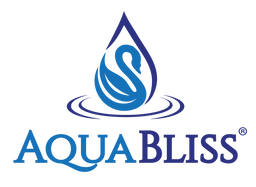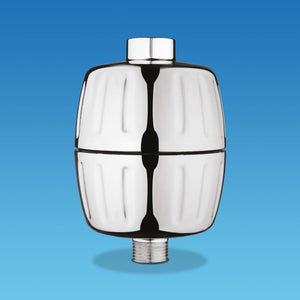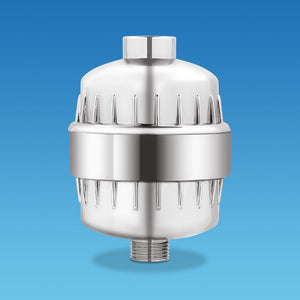Water fasting has gained widespread attention as a method for weight loss and overall health improvement. While some advocate its potential to detoxify the body and enhance well-being, others caution against the risks of improper practice.
This article delves into the details of water fasting, including its benefits, risks, and guidelines for safe implementation.
What is Water Fasting?

Water fasting involves consuming only water for a designated period, refraining entirely from food and other beverages.
Unlike intermittent fasting, which alternates between eating and fasting windows, water fasting is a complete abstinence from caloric intake during the fasting phase.
This approach, though simple in principle, demands careful preparation and consideration of individual health conditions.
Why Do People Water Fast?
The motivations behind water fasting are diverse, ranging from health improvement to spiritual or therapeutic purposes.
1. Health Benefits
Many individuals turn to water fasting for its potential to:
-
Lose weight by burning fat and reducing water weight.
-
Lower blood pressure and improve cardiovascular markers.
-
Enhance overall health by supporting detoxification processes.
2. Religious and Spiritual Reasons
Water fasting has a long history in religious and spiritual practices, symbolizing purification and discipline.
3. Therapeutic Applications
Under medical supervision, water fasting may address specific conditions such as high blood pressure or borderline hypertension. Healthcare providers often tailor fasting protocols for these purposes.
What are the Benefits of Water Fasting?
Research and anecdotal evidence suggest water fasting may offer several benefits, provided it is approached with caution and supervision.
1. Promotes Weight Loss
-
Calorie Deficit: By eliminating food intake, water fasting creates a caloric deficit, leading to fat loss.
-
Body Composition Changes: Extended fasting targets body fat but may also affect muscle mass.
2. Improves Insulin Sensitivity
-
Fasting helps lower insulin levels, allowing the body to use insulin more effectively.
-
This benefit is particularly significant for those with risk factors for diabetes or metabolic syndrome.
3. Supports Heart Health
-
Water fasting can reduce high blood pressure and improve heart health markers.
-
Animal Studies: Research in animals suggests fasting may lower cholesterol and inflammation, both linked to cardiovascular disease.
4. Encourages Detoxification
-
Prolonged fasting allows the body to detoxify by reducing uric acid levels and enhancing kidney function.
-
This process may prevent conditions like gout and certain kidney diseases.
5. Enhances Brain Function
-
Many participants report reduced brain fog and heightened mental clarity during water fasting.
-
These cognitive improvements could result from stabilized blood sugar levels and reduced inflammation.
6. May Aid Chronic Disease Management
-
Studies in Glob Adv Health Med indicate fasting may help manage digestive and kidney diseases.
-
Controlled fasting protocols might reduce the severity of some chronic conditions.
What are the Risks of Water Fasting?

Despite its potential advantages, water fasting carries inherent risks, particularly when unsupervised.
1. Low Blood Sugar
-
Prolonged fasting can lead to dangerously low blood sugar levels, especially for those with diabetes.
-
Symptoms include dizziness, fatigue, and confusion, which can impair daily functioning.
2. Health Conditions and Medical Risks
-
Those with chronic diseases, heart conditions, or eating disorders face increased risks.
-
Sudden drops in blood pressure may lead to fainting or other complications.
3. Muscle Mass Loss
-
Extended fasting may cause significant muscle loss, weakening the body’s structure and metabolism.
4. Refeeding Syndrome
-
Rapid reintroduction of food after fasting can result in metabolic imbalances, a condition known as refeeding syndrome.
-
This can lead to severe complications like electrolyte disturbances and organ dysfunction.
5. Disordered Eating Patterns
-
Water fasting may trigger or worsen eating disorders, including binge-restrict cycles or an unhealthy fixation on weight loss.
How is Medically Supervised Water Fasting Different?
Medically supervised water fasting involves professional guidance to minimize risks and maximize potential benefits.
Key Aspects of Supervision
-
Health Monitoring: Regular checks of blood pressure, hydration levels, and vital signs.
-
Customized Protocols: Tailored fasting plans based on individual health conditions and goals.
-
Support for Refeeding: Structured dietary plans to safely transition back to eating food.
Who Should Seek Medical Supervision?
-
Individuals with pre-existing medical conditions such as high blood pressure, heart disease, or diabetes.
-
Those fasting for therapeutic purposes, including managing kidney diseases or digestive disorders.
Is Water Fasting Good for You?

The benefits of water fasting largely depend on individual health conditions and how the fast is conducted.
When is Water Fasting Beneficial?
-
For individuals seeking weight management or improved insulin sensitivity under professional guidance.
-
As part of spiritual or religious practices, when undertaken responsibly.
When is Water Fasting Risky?
-
For those with chronic diseases or a history of disordered eating, fasting can exacerbate health problems.
-
In cases of unsupervised fasting, the risks often outweigh the benefits.
How Long Should a Water Fast Last?
The duration of a water fast varies depending on the individual’s goals and health status.
Short-Term Fasts
-
Fasts lasting 24–48 hours are generally considered safe for healthy individuals.
-
These shorter periods minimize the risk of adverse effects like muscle loss or low blood sugar.
Extended Fasts
-
Fasts exceeding 72 hours should only be done under medical supervision.
-
Long-term fasting can strain the body and increase the risk of complications like refeeding syndrome.
How to Safely Approach Water Fasting
Considering water fasting?
Follow these guidelines to ensure a safe and effective experience:
- Consult a Healthcare Professional. Discuss your medical history and fasting goals with a registered dietitian or healthcare provider.
- Prepare Your Body. Gradually reduce food intake in the days leading up to the fast to ease the transition.
- Stay Hydrated. Drinking water regularly during the fast is essential to prevent dehydration and maintain kidney health.
- Monitor Your Symptoms. Watch for warning signs like dizziness, extreme fatigue, or skin rashes, which could indicate complications.
- Plan for Refeeding. Transition back to regular eating gradually to avoid refeeding syndrome.
What Does Science Say About Water Fasting?
Scientific research on water fasting is still evolving, but early findings provide intriguing insights.
Animal Studies
-
Research on animals suggests fasting can improve heart health, insulin sensitivity, and weight management.
Human Trials
-
Preliminary studies highlight potential benefits for chronic conditions, but more robust clinical trials are needed.
Clinical Observations
-
Anecdotal evidence from healthcare providers suggests water fasting may benefit specific health conditions when carefully supervised.
Who Should Avoid Water Fasting?
Certain individuals should refrain from water fasting due to the heightened risks:
-
Those with chronic health conditions like heart disease or kidney diseases.
-
Pregnant or breastfeeding individuals.
-
Anyone with a history of eating disorders or disordered eating patterns.
The Role of Water Fasting in Modern Health
Water fasting remains a controversial but intriguing approach to health and wellness. Its potential to promote weight loss, enhance insulin sensitivity, and improve overall health is balanced by significant risks, emphasizing the importance of medical guidance.
Alternative Approaches
-
For those hesitant about water fasting, alternatives like intermittent fasting or a nutrient-rich, healthy diet can offer similar benefits with fewer risks.
Conclusion
Water fasting can be a powerful tool for weight loss and improved health when approached responsibly. However, its risks—ranging from low blood sugar to refeeding syndrome—underscore the need for caution and professional guidance.
By consulting healthcare professionals and following structured fasting protocols, individuals can safely explore the potential benefits of water fasting while minimizing risks.
Whether your goals involve weight management, health improvement, or spiritual growth, a well-informed approach is crucial for success. Additionally, supporting your health journey with tools like AquaBliss shower filters can help ensure cleaner, healthier water for daily hydration and overall well-being.







